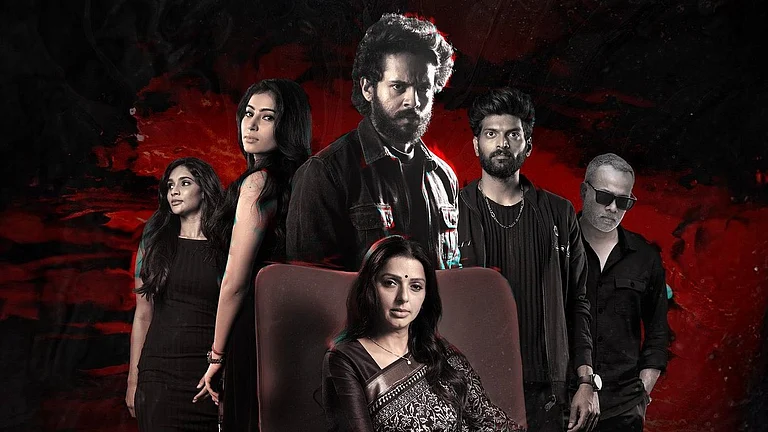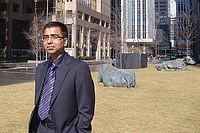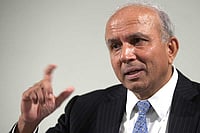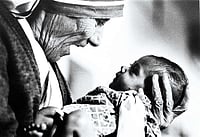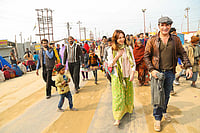Almost a year ago, Canada’s Prime Minister Justin Trudeau appointed four Indo-Canadian Sikhs to his cabinet. As with his reference to half his council of ministers being female, perhaps this too was because it was 2015. But that quartet will readily acknowledge their seats at Ottawa’s highest table may not have been reserved if not for their predecessors, who had mainstreamed the community in the country’s politics.
Among them is Ujjal Dosanjh, who turned 70 on October 14. In those seven decades, he crafted a life story that began in “a dusty village in rural Punjab” and reached high office half-way across the globe: as the first India-born premier (equivalent of a chief minister) of a Canadian province, and among the first to figure in the federal cabinet. Unfortunately, there never was a first-hand documentation of political pioneers like him. Until now, that is, with Dosanjh’s Journey After Midnight: India, Canada and the Road Beyond.
Born 10 months prior to Partition, his childhood home was in the hamlet of Dosanjh Kalan, not too distant from the Grand Trunk Road. That proximity may have lent a sense of wanderlust to rural Punjabis in its vicinity. Canada was always part of the conversation. Dosanjh’s grandfather had nearly emigrated to the country; among his sporting idols was Balbir Singh Dosanjh, who was part of India’s 1948 Olympics gold-winning hockey squad and who now lives in the Greater Vancouver region.
Dosanjh arrived in Toronto in 1968, later moving to Vancouver. Twenty-two years later, he was elected to the British Columbia legislature, thereafter appointed a minister in the New Democratic Party government and then attorney-general. In 1999, he won the party's nomination to be the next premier. As that result was announced, a dhol played outside the venue, which Dosanjh recalls as “a touching Indian finale to a historic convention”. His party, however, was swept out of power in the next election. By 2004, he had switched to the Liberal Party, won the Vancouver South parliamentary seat, and found himself in the cabinet as the federal health minister.
Dosanjh may have had an opportunity to become Canada’s prime minister if he had entered the leadership race when then PM Paul Martin resigned. But the immigrant from a peasant background knew little French, and “knowing both languages is fundamental to successful leadership on the federal level”, he writes.
Dosanjh takes us through the corridors of power and the process of getting there with great detail, and often, the minutiae can weigh down the narrative. But it turns truly dramatic as he delves into Khalistani extremism. During the conflicted 1980s, when Vancouver and its suburbs provided asylum to the Khalistani lunacy, Dosanjh was often a sane voice in the wilderness.
He recounts his encounters with Ripudaman Singh Malik, one of the main accused (later acquitted) in the bombing of Air India’s Flight 182 in 1985. “Over the years, Malik changed from the long-haired hippie I’d met into a steely-eyed orthodox man,” he writes. On a visit to India, he faces Jarnail Singh Bhindranwale in Amritsar’s Golden Temple. Dosanjh describes the over half-hour-long testy exchange. He also met then PM Indira Gandhi, who expressed “a degree of helplessness” for being unable to negotiate a deal for Punjab.
After she is assassinated, he is shocked at the celebrations in his Vancouver neighbourhood, as dhols play and laddoos are distributed. Dosanjh observes, “In times of crisis, we are often touched, even if not directly overcome, by insanity.” Derided as Ujjal Gandhi for his opposition to Khalistan, on February 8, 1985, he was assaulted in a parking lot. “My near-death experience imparted to me a renewed sense of life’s purpose,” Dosanjh says. His wife Raminder and he planned to travel to India that summer and booked their tickets on Air India for June 23, as a personal protest against the call for boycotting the national carrier, but later cancelled it. Those bookings were aboard the ill-fated Kanishka. “We were sure this was sheer coincidence. Surely, the extremists would not have designed their most evil deed around me, a small fry in the scheme of things,” he muses.
All of this forms part of a dense volume that is, at times, overpopulated by characters like extras in a Hollywood epic. That may be because Dosanjh’s story itself is quite the saga. Dosanjh writes in a style that’s languid, though fluid. But this isn’t a book that ought to be judged on literary merit. It isn’t a memoir in that sense, but a crucial chronicle of a turbulent political phase.







